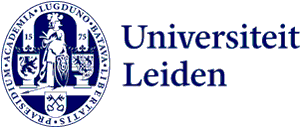13 search results for “ai” in the Public website
-
More than a digital system: how AI is changing the role of bureaucrats in different organizational contexts
In this paper, Sarah Giest and Bram Klievink highlight the effects of AI implementation on public sector innovation. This is explored by asking how AI-driven technologies in public decision-making in different organizational contexts impacts innovation in the role definition of bureaucrats.
-
 Frans Rodenburg
Frans RodenburgScience
-
AI, Peace, Justice and Security in Leiden, Delft and Rotterdam
The AI research in the area of peace, justice and security at each of the three universities in Zuid-Holland complements the AI research being performed by the other two. Three researchers explain. Part one in a series of five about themes that the three universities’ AI research covers.
-
Fink speaks on automation in the EU at conference on law and ethics of AI
The Asser Institute organised an interdisciplinary conference on ‘Law and ethics of artificial intelligence in the public sector: From principles to practice and policy’ that took place from 10 to 11 March 2022. Melanie Fink presented a paper co-authored with Michèle Finck.
-
Healthcare and population health: AI research in Leiden, Delft and Rotterdam
‘Our health is the area that stands to gain most from artificial intelligence.’ The three universities in Zuid-Holland are helping make these gains. Three researchers talk about their collaborative research into AI for health, drug discovery and healthcare in the AI knowledge cluster in Zuid-Holland.…
-
Melanie Fink organised Panel Discussion on AI in the EU and Access to Justice
On 28 January 2022, the Department of Legal Studies (Central European University), the Europa Institute (Leiden University), and the ESIL Interest Group ‘The EU as a Global Actor’ hosted an Expert Panel Discussion on the topic 'AI in the EU and Access to Justice'.
-
Reijer Passchier discusses the risks of artificial intelligence
Reijer Passchier, Assistant Professor of Constitutional and Administrative Law, recently published a statement entitled 'The AI Safety Summit at Bletchley Park Asked the Wrong Questions' in the International Journal of Social Quality.
-
Simona Demková speaks at 2024 Computers, Privacy and Data Protection (CPDP) Conference
The 2024 Computers, Privacy and Data Protection (CPDP) Conference taking place in Brussels between 22 and 24 May featured a presentation from Simona Demková from Leiden University's Europa Institute.
-
Europa Institute at the ICON-S 2024 Conference
On 8-10 July, 2024, public law scholars from around the world gathered in Madrid for the annual conference of the International Society of Public Law – the ICON-S, hosted this year by IE University. The theme of the conference “The Future of Public Law: Resilience, Sustainability, and Artificial Intelligence,”…
-
Carole Tiberius appointed professor of Computational Linguistics: 'If you know how systems work, you can better assess their limitations'
ChatGPT, translation machines and bots: for Carole Tiberius, they are a piece of cake. On 1 January, she was appointed professor of Computational Linguistics. 'There ae two elements to the field: computer science and linguistics.'
-
A much sharper picture of the universe with new algorithms and supercomputers
With new algorithms and supercomputers, an incredibly detailed radio map of the universe was created. Now astronomers can look at radio data of galaxies with much more precision. This was published in Nature Astronomy by Leiden PhD student Frits Sweijen and colleagues.
-
Artificial Intelligence learns faster with quantum technology
An international collaboration, including Leiden physicist and computer scientist Vedran Dunjko, showed that quantum technology can speed-up the learning process of artificial intelligence (AI). To prove this, the physicists and computer scientists used a quantum processor for single photons. Their…
-
Reijer Passchier: Alternatives need to be created for services of big tech companies
How can more people take ownership of technology? Underlying this question is the assumption that not enough people currently own technology. According to Reijer Passchier, Associate Professor of Constitutional and Administrative Law in Leiden, and Professor of Digitisation and the Democratic Rule of…
